LATEST NEWS


(Editor’s Note: Tomorrow is the deadline to collect signatures for the Long Beach hotel workers living-wage ballot initiative. In this post, activist Christine Petit shares her perspective on this historic effort. Her feature first appeared on the California Work & Family Coalition Web site.)
In 2008, I chose to make Long Beach, California, my home. I love Long Beach because it’s a diverse city and there are always interesting events and festivals going on. Many people are attracted to Long Beach for these reasons, if only for a weekend. In fact, Long Beach has made great strides to attract tourists, investing approximately $750 million into revamping downtown toward these ends over the last three decades.
Meanwhile, the hotel workers who take care of Long Beach’s tourists are struggling to provide for their families. The median annual income for full-time hotel and food-service workers in Long Beach was $23,538 in 2009,
» Read more about: Living Wage Law Could Go to Long Beach Voters »
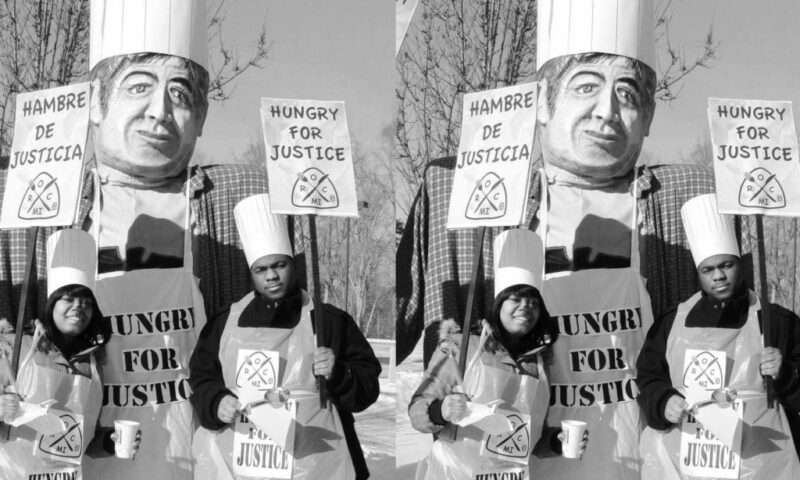

Republican legislators in Michigan have a new target, the Michigan Restaurant Opportunities Center (ROC). Apparently at the behest of industry lobbyists, GOP Representative Joe Haveman proposed limiting the funding of public universities that allow their students to get internship credits for working with ROC.
The cause is rather specific: a few interns participated in a picket line outside Andiamo, an Italian restaurant in Dearborn, near Detroit. Workers had sought to get paid overtime and get the owner to stop making them pay for their uniforms, among other demands. The company’s response (alleged surveillance and intimidation) led to several NLRB charges and a AFL-CIO sponsored boycott. The good news is, the dispute was settled back in May, 2011. The protests in question occurred back in 2009 and 2010.
As this blog post shows, restaurant industry folks weren’t too pleased, and thus the proposed new rule. The governor’s not in favor,


Memory is not only highly selective, but fatefully idiosyncratic. We remember – or forget – based on where we were, who we were with and, more elementally, who we are.
In April 1992, I was a 28-year-old editor of a now long-defunct weekly, the Village View. When violence erupted following the unfathomable not-guilty verdicts in the Rodney King beating trial, I was where I usually was in those days – knee deep in the grind of getting a paper to press. I wish I could recall exactly what I was doing, or who I was with, but those details are lost to history.
What I do know is that, because of who I was – the news editor of an alternative paper with few of the traditional restrictions that most journalists live with – my reaction to, and experience of, the civil unrest were defined not only by the fear and dread shared by many Angelenos,
» Read more about: 1992 Remembered: Memory, Truth and Justice »


By Zack Kaldveer
Consumer Federation of California
As California families continue to reel from the most severe economic downturn since the Great Depression, health insurance premium rates have soared by 153 percent since 2002, nearly five times the rate of inflation.
Businesses are finding it difficult to pay for these rate hikes, and pass the increased costs on to workers. Business owners and employees are forced to absorb these rising costs or search for less expensive – and less comprehensive – coverage options.
This injustice isn’t so hard to comprehend considering only four insurance companies control 71 percent of the California market – setting premiums behind closed doors and without accountability.
While businesses and families struggle to pay unaffordable premiums that have double digit increases every year and workers face high unemployment and stagnant wages, Blue Shield lavished its CEO with a $4.6 million salary and then proposed premium rate hikes as high as 59 percent in 2011 (but later revoked the proposal due to a massive public outcry).
» Read more about: Ballot Proposal Would Regulate Health Insurance Rates »


What I mostly remember about the riots is the smell of an urban fire – not the consoling, woody scent that wafts from a campfire, but the melting-telephone smell of a city’s guts ablaze. There was also the smoke, thick as tule fog – and the not-knowing, when you drove into it, if you’d come out on the other side.
There was something else about that week – a feeling that the world had been jolted a bit off its axis and nothing would ever be the same again, the way you feel after a breakup or car accident. The worst of it came on April 30. I had gone to a film screening in Santa Monica, and took my friend Kent to cheer him up from losing his job repairing pay phones. I was reviewing the movie for the L.A. Weekly, where I worked as an editor.


Wikimedia
If absence makes the heart grow fonder, distance makes reality look rosier. From a long way off Santa Monica appears like a liberal’s fantasy of justice in paradise. After all, we have a tough rent control law and we’ve had a mostly enlightened city council, government and school board for more than three decades. But from up close, the picture’s not that sweet.
A recent hotel approval exposed the reality. A developer wanted some special consideration for the 710 Wilshire hotel project that was oversized and out of conformance with zoning standards. Hotel workers in the city wanted to guarantee a decent wage for the people who would work in the new hotel as well as those who would build it. The city staff likes hotels because they provide an easy source of revenue. But the developer wouldn’t budge on the wage issues.
He wasn’t willing to require an operator to pay a decent income to hard-working,
» Read more about: Santa Monica Dreaming: Trouble in Rent-Controlled Paradise »
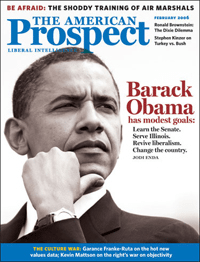
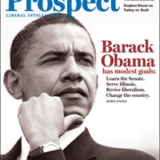



Ralphs had already left my neighborhood in Gardena — known as one of the most diverse cities in L.A. County — at the time of the ’92 riots. I remember the brightly lit grocery store with wide aisles being replaced by a Payless Foods with cramped aisles where food items like Sunny Delight and Cool-Ranch Doritos all of a sudden were double the price.
I remember a lot about ’92. I was 13 and lived in an apartment with my sister, mom and dad in the black part of Gardena, a trend we started where brown folks were creeping slowly into traditionally African-American neighborhoods.
It was the year before I entered high school. At the time, I attended Maria Regina Catholic School across the street from where I lived. Most of the students and my friends were African-American or Latino. I had to make a choice about which school to go to,


(Note: This post first appeared April 28 on L.A. Progressive.)
According to US Secretary of Labor Hilda Solis, more people die in the American workplace in a single year than have been lost in nine years of war in Iraq. “Each day in America, twelve people go to work and never go home,” she told the audience at the Action Summit for Worker Safety and Health held at East Los Angeles Community College on April 26, one of many events leading up to Workers Memorial Day, April 28, an annual date of remembrance for those killed, injured, or sickened on the job.
María Elena Durazo, Executive-Secretary-Treasurer of the Los Angeles County Federation of Labor, AFL-CIO, reported there were 500 work-related deaths in 2011 in California and “Workers are still being fired for speaking out in order to avoid death.”
This loss of life and countless serious injuries,
» Read more about: Killer Jobs: Policing America's Dangerous Workplaces »





By Shomari Davis
It’s no secret that the disappearance of manufacturing in Los Angeles and other urban centers over the past few decades has hit communities hard. When the factories closed, they took with them not only jobs, but the path to a better future for countless residents.
What you may not know is that, for the first time in a long time, we have a real shot at bringing an important manufacturer back to L.A. – and along with it jobs and hope.
The company is Siemens, one of the world’s largest railcar producers. Siemens is one of the finalists for a $1 billion railcar contract, which will be awarded by the Metropolitan Transportation Authority (MTA). If chosen, the company will bring more than 1,100 jobs to the U.S., many of them right here in L.A.
Here’s the bad news: MTA staff has recommended that the board go with a bid from the Japanese firm Kinkysharyo.
» Read more about: MTA, Bring Manufacturing Jobs Back to LA! »


April 29, 1992. For me, at the time an 11-year-old Black child living in a low-income section of Long Beach, that date represents more than a civil disturbance. While too young to clearly understand concepts like oppression, I was old enough to know the profound frustration associated with being poor within an economy that continued to deny the aspirations and dreams of many in my neighborhood.
Those were the years immediately following Reaganomics and the George Bush “read my lips” tax plan. The good ol’ colored people in communities like South Los Angeles, Compton, Watts and Long Beach were supposed to wait quietly and patiently for the day when the free market, through the trickling down of quality jobs, health care and good schools, delivered the gift of liberation we had all hoped for. Unfortunately, with each passing moment, those promises faded deeper and deeper into a dark empty background – with no hope of ever resurfacing.
» Read more about: 1992 Remembered: Why Los Angeles Had to Burn »


This past Monday, I drove to Long Beach to participate in the Living Wage Campaign. A large group of us met up at the North Long Beach Christian Church at 2 p.m. I was nervous, the way I used to get on the first day of school. There were a bunch of kids I didn’t know and some of them were smoking in the parking lot — I was the new guy, unsure and walking around aimlessly.
The Long Beach Coalition for Good Jobs and a Healthy Community has been in a fight to get its hotel workers out of poverty wages. The organization is attempting to get an initiative on the November ballot that would require hotels with more than 100 rooms to pay their workers $13 an hour and give them five mandatory paid sick days per year.
Of course an initiative like this requires lots and lots of signatures from registered voters,
» Read more about: Left-Wing Nut Jobs – A Canvasser’s Tale »


Ruben Martinez is a professor of literature and writing at Loyola Marymount University; his most recent book, Desert America: Boom and Bust in the New Old West, will be released in August. At the time of 1992’s civil unrest, he was a reporter for the L.A. Weekly. Martinez spoke to Frying Pan News about his coverage during that volatile week.
Frying Pan News: What was your assignment that first day?
Ruben Martinez: I was at the courthouse in Simi Valley, camped out with Eric Spillman of KTLA – I couldn’t get inside, there were too many people there already. Outside, all the veteran journalists had their lawn chairs and umbrellas — they’d been there for weeks. The spectacle of it impressed me.
Did the acquittals shock the media?
Yes. A really motley crew of people – reporters,
» Read more about: 1992 Remembered: Prophets and Prisoners of War »


What do I most remember about the uprising of ’92? That certain feeling of powerlessness.
I have so many vivid memories: People swarming the supermarket on Third Street and Bonnie Brae, just west of downtown, rushing out with baskets loaded with diapers and food supplies. Outraged young men standing in the middle of Crenshaw Boulevard near Adams, blocking my way home — at least until I figured out how to go around them. Burning buildings all around where I worked in Pico Union, and where I lived in South Los Angeles. And then the drawings of my five-year-old twins, showing burning buildings and people running for their lives.
I was a 32-year-old mother of three young children, and working as the Executive Director of the Central American Refugee Center (CARECEN) in Pico Union. I was living in a four-bedroom bungalow house near Crenshaw and Venice boulevards, so between my home and work,
» Read more about: 1992 Remembered: Smoke Gets in Your Eyes »


If you haven’t checked this out yet, you need to. Now.
According to the New York Times, Walmart fueled its rapid expansion in Mexico with millions in bribes paid to get building permits and land use approvals through quickly. The story is based on a whistleblower, who told Walmart leadership about the issue, which they confirmed was very likely true before allegedly sweeping the whole thing under a rug. The Washington Post reports that the Department of Justice is investigating.
From an L.A. perspective, the money quote is here: “In an interview with the Times, Mr. Cicero said Mr. Castro-Wright had encouraged the payments for a specific strategic purpose. The idea, he said, was to build hundreds of new stores so fast that competitors would not have time to react. Bribes, he explained, accelerated growth. They got zoning maps changed.
» Read more about: WebHot: Walmart Bribery Scandal Explodes »


(Editor’s Note: Frying Pan News continues its series about the 1992 unrest with this account told to us by Erin Aubry Kaplan.)
I was living in Inglewood in 1992. When the verdicts came in I was getting a facial — we were all really outraged in the salon. At that time I was teaching adult education courses — basic English and math for GED exams, plus ESL classes. I felt like I had to do something and a teacher friend and I heard there was a rally at the First AME Church. I was excited — I hadn’t really seen this kind of energizing in L.A. before. But as we drove to FAME people were filling up the streets and the energy felt dangerous.
We never made it: This guy threw a trash can into the street and someone tried to stop a motorist. (My father also went to FAME and didn’t make it inside because it was too crowded —
» Read more about: 1992 Remembered: From Inglewood to Brentwood »
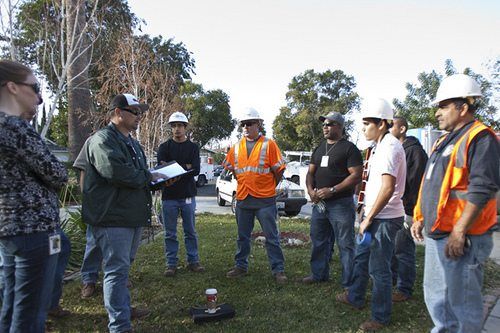

The Los Angeles Department of Water and Power’s preliminary budget will come before the Los Angeles City Council today. There’s lots there to consider, from hundreds of millions of dollars for rebuilding local power plants and renewable energy to hundreds of millions more to replace an aging distribution system.
Buried in the budget is a piece of good news that deserves some recognition. The LADWP’s $88 million energy efficiency budget is looking more respectable than it has in the past and more on par with other utilities. Last year, the Department spent $50 million. This year’s budget is not quite where it should be, but it’s moving in the right direction.
That is due in large part to a campaign led by RePower LA, a citywide coalition of community groups, environmentalists, small businesses and IBEW Local 18 committed to expanding energy efficiency investment in a way that leads to career-path jobs,
» Read more about: Community Activism Powers Energy Efficiency at LADWP »
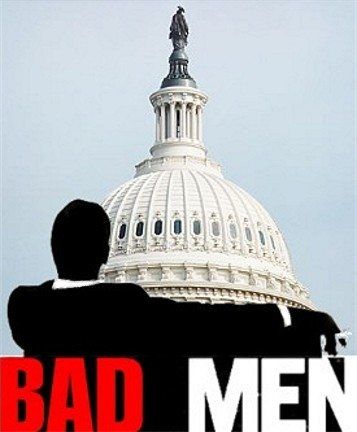

Three weeks ago March Madness in Washington gave way to April Apoplexy, a time when conservatives put aside the boring tasks of creating jobs, loosening credit and saving people’s homes in order to follow their true passion – kicking the ladder away from Americans who are trying to climb up to better lives. And what easier way to do this than to gut the work of the National Labor Relations Board (NLRB), an agency that has become a favorite chew toy of Congressional right-wingers?
Remember the doomsday predictions made by the U.S. Chamber of Commerce and others when the NLRB insisted that businesses put up the board’s tiny poster advising employees of their rights? That teapot tempest is now clogging up the federal courts, thanks to the chamber, but such mischief is nothing compared to what the chamber’s caddies in Congress have been up to.
» Read more about: Anti-NLRB Vote: A Dark Victory for Conservatives? »


(Editor’s Note: This post, written by Twilight Greenaway, originally appeared on Grist, about the same time a bribery scandal allegedly involving Mexican Walmart officials began unfolding.)
Shrimp has been hovering near the bottom of the list of things I will eat for a while. Unless you make a point to get it wild, chances are very good it has been raised in a crowded pond and treated with loads of antibiotics. Factor in its mammoth carbon footprint, and the fact that many of the developing world’s mangroves have been displaced in recent years to make room for shrimp farms, and my appetite for these crustaceans all but disappears.
Now we can add labor abuse to shrimp’s laundry list of problems.
A group of shrimp workers has been protesting dismal conditions in a Thai factory for weeks.
» Read more about: Walmart's Thai Shrimp: A Jumbo PR Nightmare »